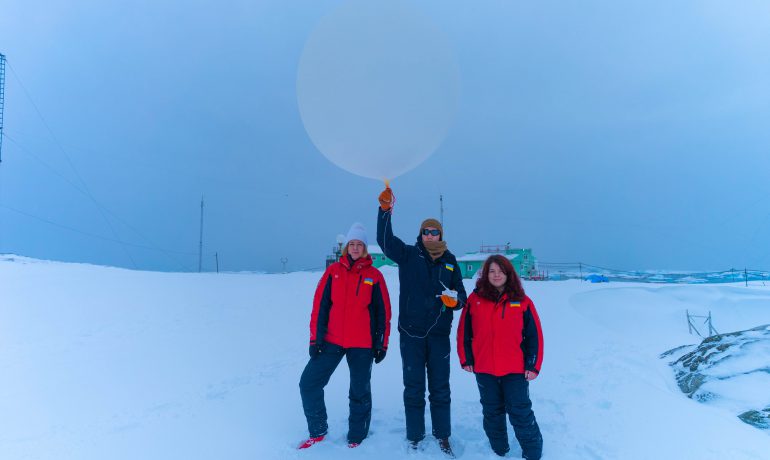In 2022, an exceptional international initiative, the Year of Polar Prediction (YOPP), was launched, which was held around the world. YOPP mission is enabling a significant improvement in environmental prediction capabilities for polar regions and beyond.
Despite the full-scale war, Ukraine actively joined this initiative. For the first time in the history of Ukrainian Antarctic Expeditions, our meteorologists began continuous research of the atmosphere with the help of radiosondes.
In addition to Vernadsky station, radio sounding of the atmosphere was carried out at another 23 Antarctic stations belonging to 13 countries (Argentina, Australia, Chile, China, France, Germany, Italy, Japan, South Korea, New Zealand, Portugal, Great Britain, USA).
A total of 609 radiosondes were launched from all stations during the monitoring period.
It should be noted that 63 of them were launched by Ukrainian scientists from Vernadsky, and this is a fairly large proportion, almost 10%! This is important, since each successful flight of the radiosonde made it possible to obtain unique data, which are now being studied by scientists from all over the world.
So, now the information received is used to improve the weather forecast in the region of Antarctica and the Southern Ocean. These data will also be used to investigate the vertical distribution of various atmospheric characteristics and their changes.
We are proud that, despite the difficult situation in the country, our polar explorers are actively participating in important international projects creating world science.
And how the launches of radiosondes were carried out (at our station, due to the whims of the weather, it was another quest), watch the video.
YOPP: Year of Polar Prediction from Byrd Center – Ohio State on Vimeo.
Thanks for the information to meteorologist Anastasiia Chyhareva, who actually works on data processing in the project.


